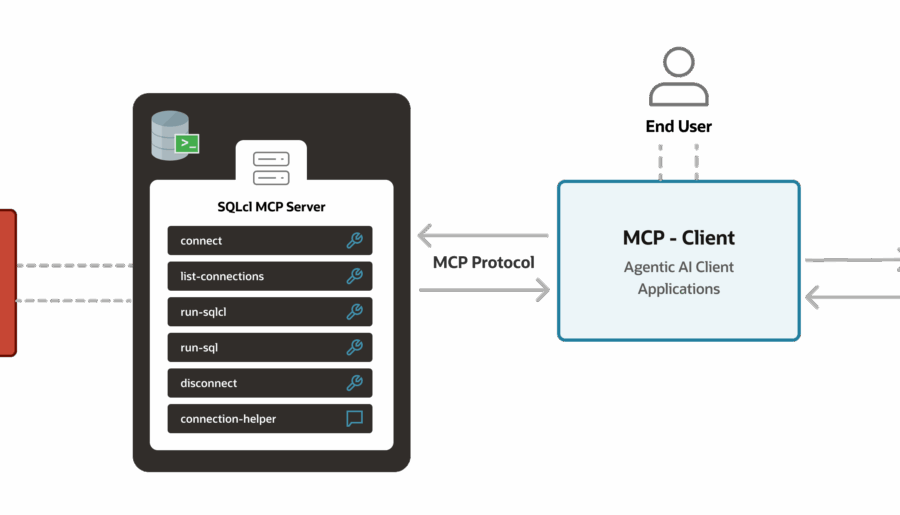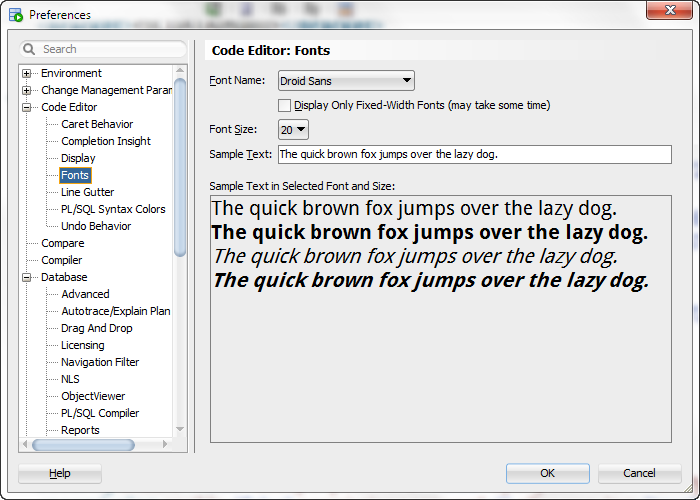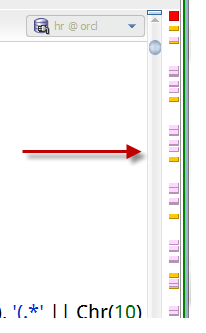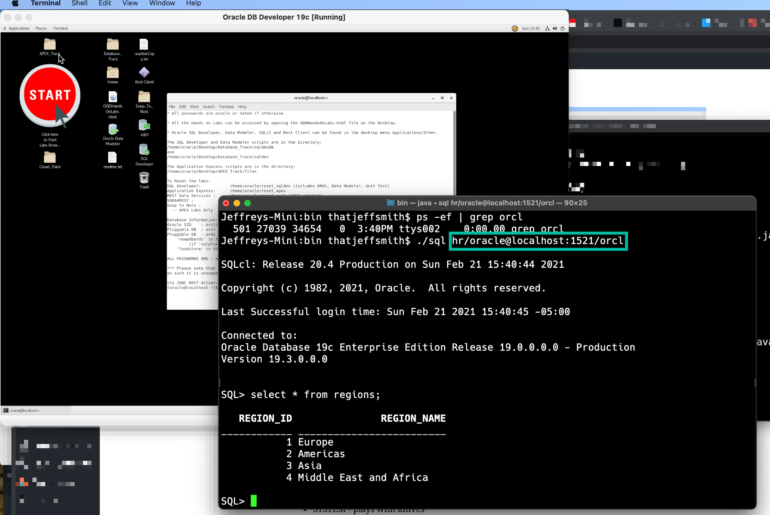Today I want to talk about how to version control your Data Modeler designs with Subversion. Oracle SQL Developer Data Modeler is free. Subversion is free. So for no money, you can design your database objects, and version control them for one or more people. I’ve put together some slides for your enjoyment: Oracle SQL Developer Data Modeler – Version Control Your Designs from Jeff Smith Psst, slide #16 has the ‘good’ stuff But Wait…
We actually have THREE patches for you: Oracle SQL Developer 4.0.1 Oracle SQL Developer Data Modeler Oracle REST Data Services, formerly Oracle APEX Listener, 2.0.6 Bug Fixes, Mostly SQL Developer had a few dozen or so bugs that have been addressed. A few major fixes of note include the new ASH/AWR stuff not working when connected to RAC instances, and the debugger being busted when trying to use watches. The Modeler had it’s fair share…
I do a lot of live presentations and demonstrations. I’m frequently asked, ‘why does your SQL Developer look that way?’ or ‘How can I make SQL Developer work that way?’ It’s all about the preferences (or options.) So here’s what you can do if you want to be like me. By the way, I can’t really help you if you want to be like me, that’s a matter for a psychiatry blog. Here are the…
Update: we added the auto-replace option in a later version of SQL Developer, so if you don’t see it in your version, UPGRADE. I get this question every few months, and I got it again last week in Denver – How can we setup auto-replace in SQL Developer? If I accidentally type ‘form’ I want it to come out as ‘from’ for example. I’m not a huge fan of the IDE ‘automatically’ doing things with…
Ever wonder what all the red, yellow, and purple marks in your procedure editor are supposed to tell you in the Oracle SQL Developer Procedure Editor? No idea what I’m talking about? This: This is the editor trying to help direct you to where you might have problems, instead of you having to to scroll the text looking for the squiggles. What squiggles, you ask? These: Mousing over the line shows you the Compiler Warning.…
Updated February 2021: I’ve updated this post to reflect the newest edition of this VirtualBox Appliance. If you’re looking for an already configured Oracle Database 19c environment with a database already setup and all the software you need to learn database programming, design, and administration concepts, then look no further! No need to create anything, just download, import, and run a fully functional Oracle Database, complete with sample data and hands on labs. This…
You are using Oracle SQL Developer, and you want to create or open a design in the Data Modeler. How do you GET to the Modeler? Oracle SQL Developer Data Modeler is a standalone solution that is also shipped in SQL Developer as an extension. The user interface of the Modeler is folded into SQL Developer. If you are going to be doing just a quick-and-dirty operation on your design, working with SQL Developer will…
On Tuesday, February 4, 2014 – 9am to 1pm PT / 12pm to 4pm ET / 3pm to 7pm BRT, we will be holding a Virtual Developer Day conference. From the comfort of your Internet connection, you can pick from four different content tracks: Big Data for Developers Big Data for DBAs Oracle 12c for the Developer Oracle 12c for the DBA The Oracle Technology Network (OTN) has assembled an agenda of live, moderated sessions…
You’re excited to see that defining triggers and sequences to populate identity columns in Oracle Database is no longer required. You have an Oracle Database 12c instance up and running, and you’re ready to hit the ground running. Wait, what is Jeff talking about? Ok, let’s say I have a ‘BEER’ table. My Primary Key (PD) will be an integer. I want BREWERY #1 to have an ID of 1, and then each new BREWERY’s…
Oracle SQL Developer Data Modeler (SDDM) is a free data modeling solution. It supports many types of modeling levels, including: logical relational physical (multi-)dimensional When I present overviews on our database tools, I have this slide that shows what SDDM is capable of: I am not a real data modeler. However, I can fake my way pretty well through Logical and Physical modeling discussions and exercises. When it comes to the dimensional stuff, I tend…







